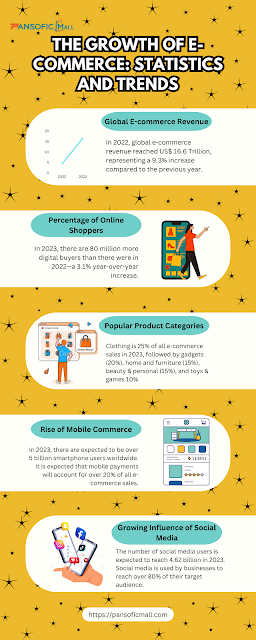What is an E-Commerce Platform, and How Can You Benefit from It? – A Complete Guide
What is an E-Commerce Platform, and How Can You Benefit from It? – A Complete Guide
Introduction
In today’s digital world, having an online presence is crucial for businesses of all sizes. One of the best ways to enter the online marketplace is through an e-commerce platform. Whether you're a small business owner or an entrepreneur looking to scale, understanding what an e-commerce platform is and how it can benefit your business is key to long-term success.
This guide will walk you through everything you need to know about e-commerce platforms, their types, benefits, and how to choose the best one for your business.
What is an e-commerce platform?
An e-commerce platform is a software solution that allows businesses to build and manage an online store. It provides the necessary tools for product listing, payment processing, inventory management, customer service, and more.
These platforms help businesses sell products and services over the internet, catering to both B2C (business-to-consumer) and B2B (business-to-business) markets.
Key Features of an E-Commerce Platform:
✅ Website Builder – Easy-to-use templates or custom development options. ✅ Product Management—Add, edit, and categorize products. ✅ Secure Payment Processing – Integration with various payment gateways. ✅ Order & Inventory Management – Track orders and manage stock. ✅ Marketing Tools – SEO, social media, and email marketing integrations. ✅ Customer Support – Chatbots, FAQs, and helpdesk services. ✅ Analytics & Reports—Insights into customer behavior and sales trends.
Types of E-Commerce Platforms
There are several types of e-commerce platforms, and choosing the right one depends on your business needs and technical expertise.
1. Open-Source E-Commerce Platforms
These platforms offer full customization and control.
Requires coding knowledge or a developer.
Examples: WooCommerce, Magento, OpenCart
2. SaaS (Software as a Service) E-Commerce Platforms
Hosted by a third party, no technical skills required.
Monthly subscription-based model.
Examples: Shopify, BigCommerce, Wix eCommerce
3. Headless E-Commerce Platforms
The front-end and back-end are decoupled, allowing flexibility.
Ideal for businesses needing a customized shopping experience.
Examples: Commercetools, Shopify Plus, Magento Commerce
If you're considering taking your business online, here are some of the key advantages of using an e-commerce platform:
1. Low Cost & Easy Setup
Unlike physical stores, an e-commerce store requires lower startup costs. Platforms like Shopify and WooCommerce make it easy to set up a store in a few clicks.
2. Global Reach
Your business is no longer limited to a local audience. With an e-commerce platform, you can sell to customers worldwide and expand your reach.
3. 24/7 Availability
Unlike a traditional store, an online store never closes. Customers can shop anytime, leading to increased sales and revenue.
4. Better Customer Insights
E-commerce platforms provide data analytics tools that help you understand customer behavior, track sales, and improve marketing strategies.
5. Increased Scalability
As your business grows, an e-commerce platform allows you to easily expand your product range, add features, and integrate with third-party services.
6. Secure Transactions
Most platforms ensure secure payment processing with SSL certificates, fraud protection, and multiple payment gateways.
How to Choose the Right E-Commerce Platform?
With so many options available, selecting the right e-commerce platform can be challenging. Consider the following factors before making a decision:
✅ Ease of Use: Look for a platform with a simple interface and drag-and-drop features. ✅ Customization: Choose one that allows you to personalize your store. ✅ Payment Options: Ensure it supports multiple payment methods like PayPal, Stripe, and credit cards. ✅ Security Features: SSL encryption, fraud protection, and secure checkout are crucial. ✅ SEO & Marketing Tools: To improve visibility and attract customers. ✅ Mobile Optimization: Your store should be mobile-friendly for a seamless shopping experience. ✅ Pricing & Scalability: Consider pricing plans that fit your budget and future growth.
Best E-Commerce Platforms in 2024
Here are some of the top-rated e-commerce platforms to consider:
1. Shopify 🛒
Best for beginners and small businesses.
User-friendly with built-in SEO and marketing tools.
Pricing starts at $29/month.
2. WooCommerce ⚙️
Ideal for WordPress users.
Offers full customization and flexibility.
Free to use (with additional paid extensions).
3. Magento 🔥
Best for large enterprises.
Highly scalable with advanced features.
Requires technical knowledge.
4. BigCommerce 💰
Great for growing businesses.
Supports multi-channel selling.
Pricing starts at $29.95/month.
5. Wix eCommerce 🎨
Ideal for small businesses and creative brands.
Drag-and-drop builder with great design templates.
Pricing starts at $23/month.
Conclusion
Choosing the right e-commerce platform is essential for your business’s growth. Whether you're a startup, small business, or enterprise, selecting a platform that fits your needs will help you maximize sales, expand reach, and streamline operations.
If you’re ready to start your online store, explore platforms like Shopify, WooCommerce, and BigCommerce, and take the first step towards digital success! 🚀



Comments
Post a Comment